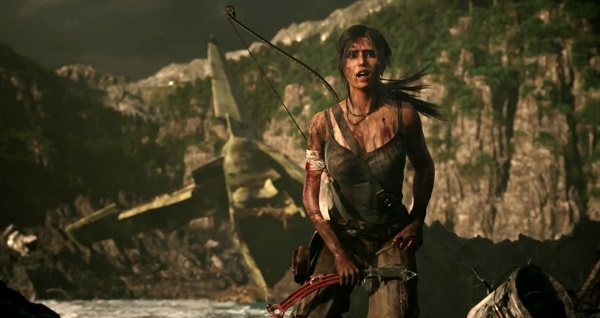
The past week saw two rather interesting pieces of news. The first was the financial report of publishing giant Square Enix for the fiscal year ending March 31 2014. Happily, they posted profits to the tune of $65 million; a huge step up from last year’s disastrous $134 million net loss. Crediting the turnaround to their gaming division, Square Enix cited Final Fantasy X/X-2 HD Remaster, Thief and Tomb Raider: Definitive Edition as all enjoying “favourable sales”.
It wasn’t always sunshine and roses for Crystal Dynamics’ reboot of the Lara Croft franchise, however. Despite launching to impressive sales figures – a million copies in just forty-eight hours and 3.4 million within four weeks – a financial briefing in early April 2013 revealed that Square Enix had been expecting nearly double those numbers, believing that a ‘conservative’ 5-6 million copies could have been sold in the same timeframe.
It was a rather peculiar reaction given the numbers, and whilst there’s nothing wrong with setting high goals, expecting Halo-like figures for a reboot of an arguably dying franchise is surely a little naive.
Square Enix aren’t alone, however. Capcom displayed a similar reaction to the initial sales figures of Resident Evil 6, showing disappointment that ‘only’ 4.8 million people bought the latest title in their long-running zombie franchise during November/December 2012 (although perhaps the bigger surprise is that 4.8 million people bought such a poorly made game at all).
Are companies expecting too much from their games? It seems nearly inconceivable that 3.4 million sales in four weeks could be seen as anything other than a resounding success, and it begs the question: just how much investment is being poured into some games?

Capcom famously had 600 people working on Resident Evil 6 at one point, a number so ludicrously high that suddenly the need to sell six million copies in two months perhaps makes a little more sense. The perceived failure of Tomb Raider undoubtedly led to the release of the Definitive Edition on PC and PS4 in February 2014, and in early March David Gallagher – head of Crystal Dynamics – predicted that combined sales would finally hit six million. Favourable sales at last – just a year too late.
Is this widening the gap between AAA releases and smaller, indie titles? Or are we perhaps seeing the creation of a new, super-subset of games? The Uber-AAA, where normal blockbusters like Gears of War and Uncharted need not apply.
The second piece of news doesn’t necessarily disagree, with Activision announcing last week that Destiny’s total funding was to be in the region of $500 million. That’s half a billion dollars being funnelled into a brand new (read: untested) franchise, and whilst a lot of that will undoubtedly go towards marketing or ongoing server maintenance, it’s still a hefty chunk of change.
With Bungie at the helm, Destiny already has a fair share of hype in the lead up to its release, and Activision are clearly hoping that subsequent games in the series won’t require anywhere near the same amount of investment. But how many copies will Destiny need to sell to recoup that sort of funding? Assuming that every copy sold is at the US RRP of $60, just a tad over 8.3 million – and that’s just to break even. Is it possible? Definitely – Assassin’s Creed titles regularly sit around the 8-10 million mark. Is it likely? Who knows. As The Old Republic and Final Fantasy XIV attest, large, sprawling online games come with their own set of problems.
It definitely appears that the foundations of the gaming industry are shifting. The rise of the indie publisher during the last generation resulted in an extremely profitable niche at the lower-end of the market, so perhaps it’s not surprising to see the larger publishers attempting to do the same at the opposite side. Ultimately, there’s nothing wrong with trying to create the Next Big Thing, but if development teams and budgets continue to swell to astronomical figures, publishers shouldn’t be surprised when they struggle to recoup their investment.


